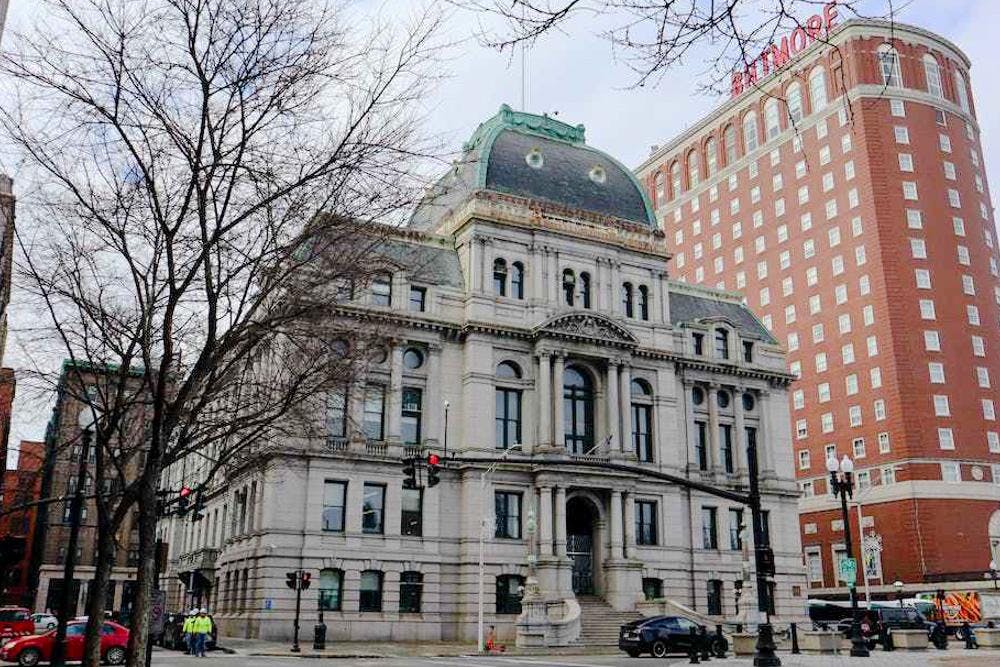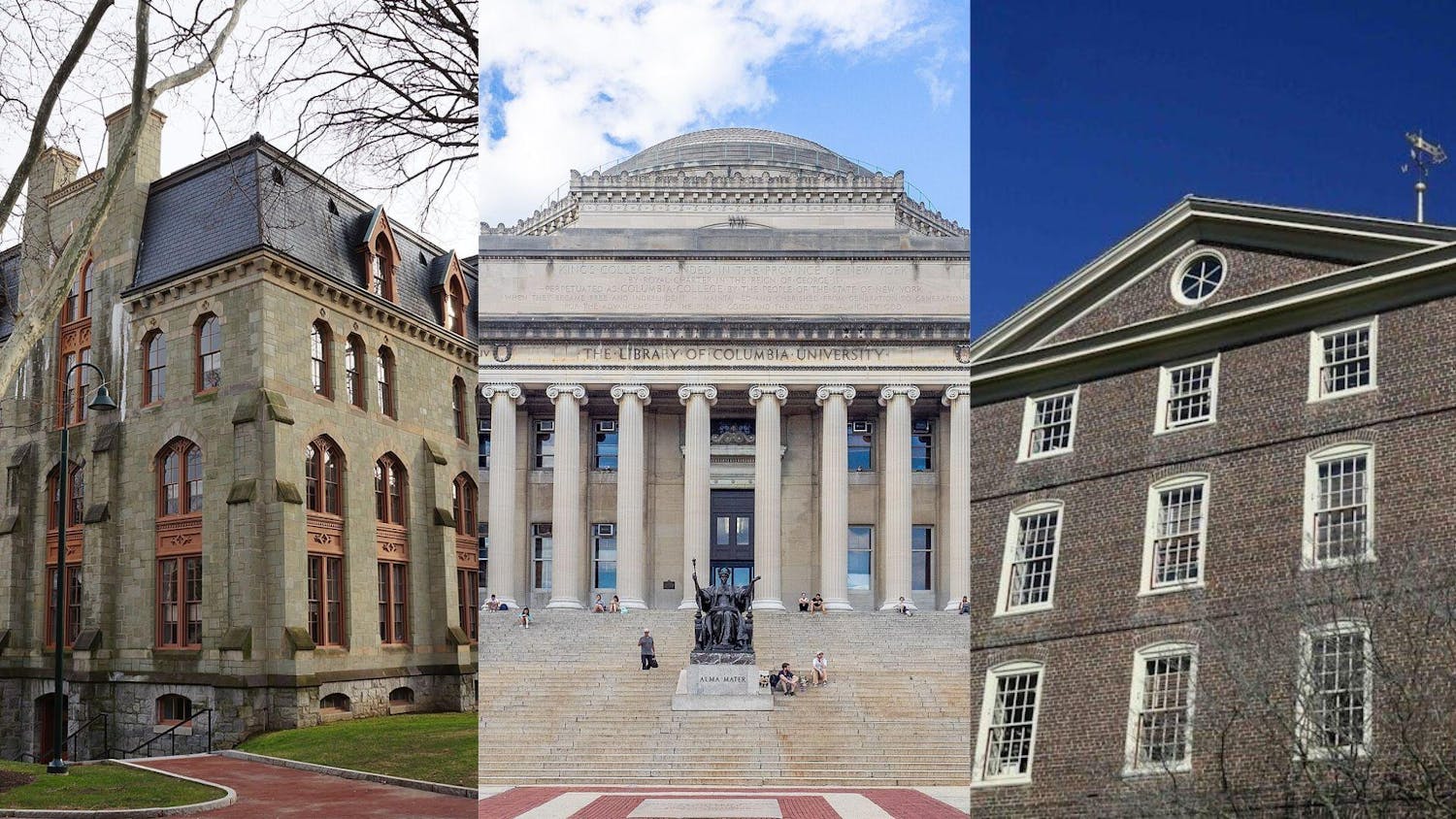On Sept. 7, Providence’s City Council announced the formation of a nine-member special commission to investigate the city’s current revenue streams and tax laws. The commission will also consider possible alternative revenue streams.
The City Council’s announcement explained that the commission’s findings could eventually work to “reduce the (tax) burden on property owners.”
City Council President and Ward 13 Councilor Rachel Miller said that the city has had many tax commissions in the past. But “the goal of this one is not to have a report that’s just on the shelf, but to have some actionable goals,” Miller said.
The commission will include expert opinions from three council members, public officials, academics and other stakeholders. Commission members will include Lawrence Mancini, Providence’s chief financial officer; Michael DiBiase, president and CEO of the Rhode Island Public Expenditure Council; and Tom Sgouros, computer science research associate and fellow at the Policy Lab at Brown.
Ward 5 Councilor Jo-Ann Ryan, who will also serve on the commission, said she was appointed due to her background in finance — she has an MBA and previously served as chair of the City Council Finance Committee.
She described the commission as both “necessary” and “pertinent.”
“In the past 10 years there (have) been significant swings in real estate property value, and those swings cause challenges to budgeting as well as investing the resources of the city,” Ryan said. The City Council’s announcement states that these fluctuations have “burdened residential homeowners and commercial businesses inequitably.”
Ryan said that while it’s unlikely that the commission will recommend replacing property taxes as the key source of municipal budget funds, the commission is hoping to ensure that the tax burden is fair and shared equally among the city.
She added that she hopes to look at certain tax exemptions to see if certain changes could promote a “fairer, more sensible way” of distributing the tax burden.
Miller also noted that while traditionally highly-valued property has remained stable in its price, the value of property in historically working-class neighborhoods has gone up dramatically, increasing tax burdens on working people in Providence.
Sgouros, who has worked in public policy for multiple decades, said that Providence’s revenue shortfalls from property taxes can be traced back to the legacy of suburbanization. In the 1950s, there was a mass movement of people out of Providence and into the suburbs that lasted 40 years, Sgouros explained. According to a report from the Department of Planning and Development, “Many white households migrated to the suburbs while minorities largely remained in urban neighborhoods like South Providence.”
As a consequence, property values rose in the suburbs, and it became “trivial” for suburban communities to balance their budgets while urban communities struggled, Sgouros said.
“Rather than look into the roots of that problem, (legislators) assumed that all the urban communities that were having trouble balancing their budgets were irresponsible,” he said.
According to Anthony Levitas, senior fellow in international and public affairs, property taxes are the major revenue source for most American cities.
“The property tax was what we used to fund the most important local government function, which in America has almost been, everywhere, schools,” he told The Herald.
Yet Levitas said that over time, property taxes have failed to yield enough revenue for local governments to support their infrastructure needs and school systems. As a result, he said, cities have grown increasingly dependent on state and federal grants, which can now make up about 40% of cities’ revenue.
Levitas attributed other issues to what he sees as certain flaws in Providence’s basic property tax structure.
For instance, he said, there’s a considerable difference in the effective rate of the property tax for rented homes compared with homes occupied by their owners given the existence of a significant deduction for owner occupancy.
“The politics of that are difficult to change, but probably (are) fundamentally unfair,” Levitas said. “It’s good for the middle class that owns and occupies their houses, but in fact places the burden of the tax on poor households that rent and gives a big bonus for rich people who have fancy houses that they live in.”
A 2017 Massachusetts Institute of Technology PhD dissertation found that landlords can effectively pass the cost of higher property taxes onto their tenants.
He said that Providence’s insufficient property tax revenue has also prompted increased reliance on commercial taxes — the city had the third-highest rate in the country on high-value commercial properties as of 2022, according to a Lincoln Institute of Land Policy report. High commercial taxes can hamper business, Levitas noted.
Finally, because hospitals, nonprofits and universities often do not have to pay property taxes, about 40% of properties in Providence are off the tax roll. Instead, the city can receive voluntary payments from non-profit universities, which are negotiated to ensure that those institutions are making “some reasonable contribution” to the city’s budget, according to Levitas. On Thursday, two proposed agreements that would increase Brown and other local universities’ voluntary payments to Providence will be transmitted from the City Council’s Committee on Finance to the full council.
In response to these concerns, Josh Estrella, press secretary for Mayor Brett Smiley’s office, wrote in an email to The Herald that “The administration is looking forward to collaborating with the City Council to evaluate our current tax structure to ensure it is sustainable, equitable and supports the long-term growth of the city.”
According to the press release, the commission will also explore the possibility of alternative revenue streams.
The commission is charged with delivering a report of recommendations to the City Council by the end of 2023 and will meet nearly every week throughout the fall to do so.
Despite the time crunch, commission members said they are excited to delve into their work. “When you do research into public finance issues, you find a lot of irrationality sitting around, things that are done because this is the way we’ve always done them,” Sgouros said. The commission, he said, will examine the foundation of the city’s revenue streams, and make “sure that it’s done sensibly and done for the right reasons.”

Yael is a senior staff writer covering city and state politics. She is junior, and hails from the Bay Area.





